'We pray every day' | Georgia parents spend $100,000 on fighting abuse charges, hope to reunite as family
Casey and Bailey Collins believe their son has a medical condition causing brain bleeds. Their pediatrician believes the same. However, the state says it's abuse.
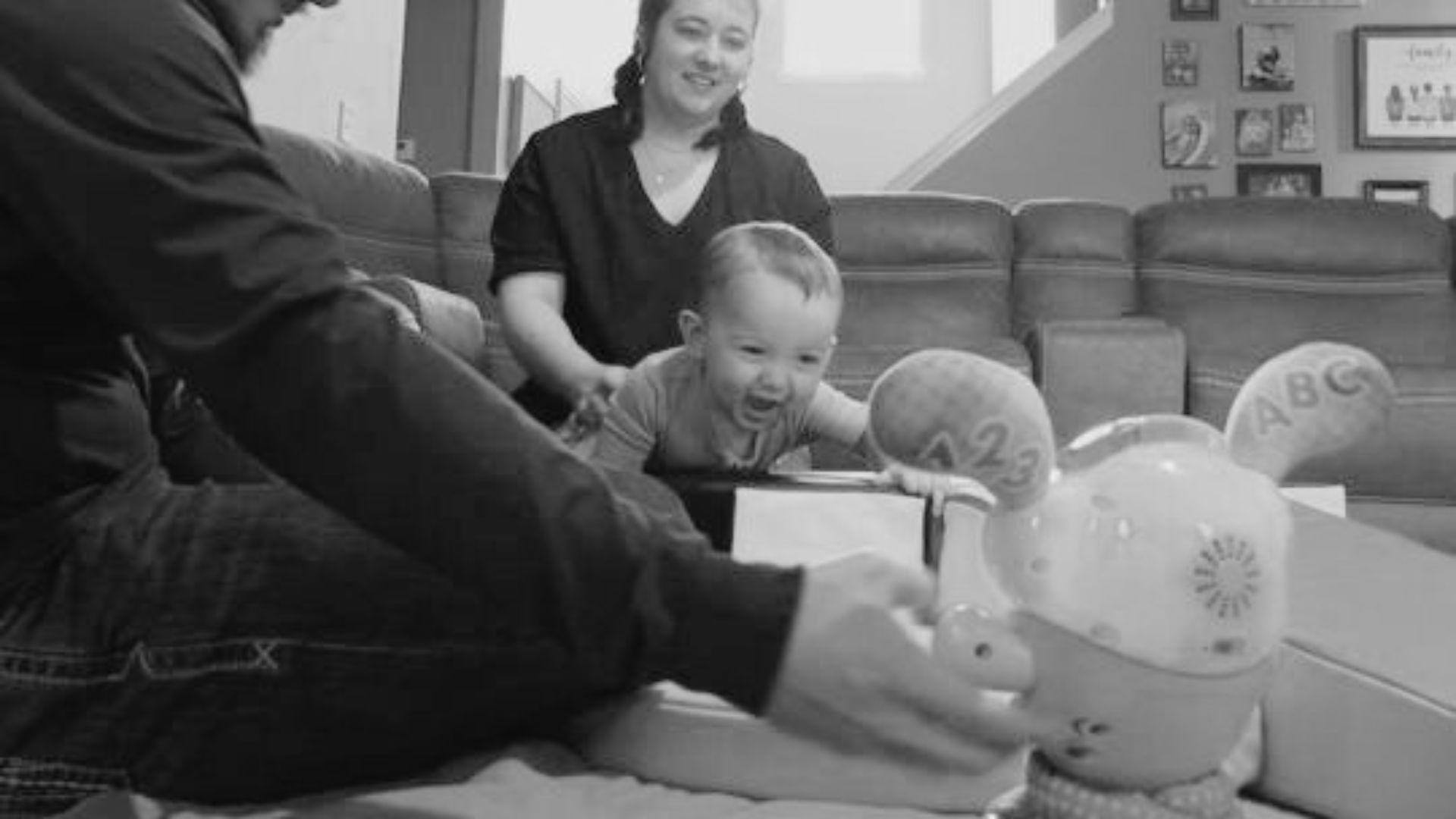
Bailey Collins is an advanced EMT, so she knows what to do in a medical emergency.
But when her son Ridge stopped breathing, she struggled to remember her training.
“You're not prepared and trained to use life-saving skills [on] your child,” Collins said frankly.
It was August 2023. Collins performed CPR and then drove to a nearby fire department. As soon as Ridge became responsive and started crying, his breathing would stop again. They drove to a grocery store parking lot, where a helicopter landed to take him to Children’s Healthcare of Atlanta.
It was there that a child abuse pediatrician determined someone had violently shaken Ridge, causing his brain to bleed.

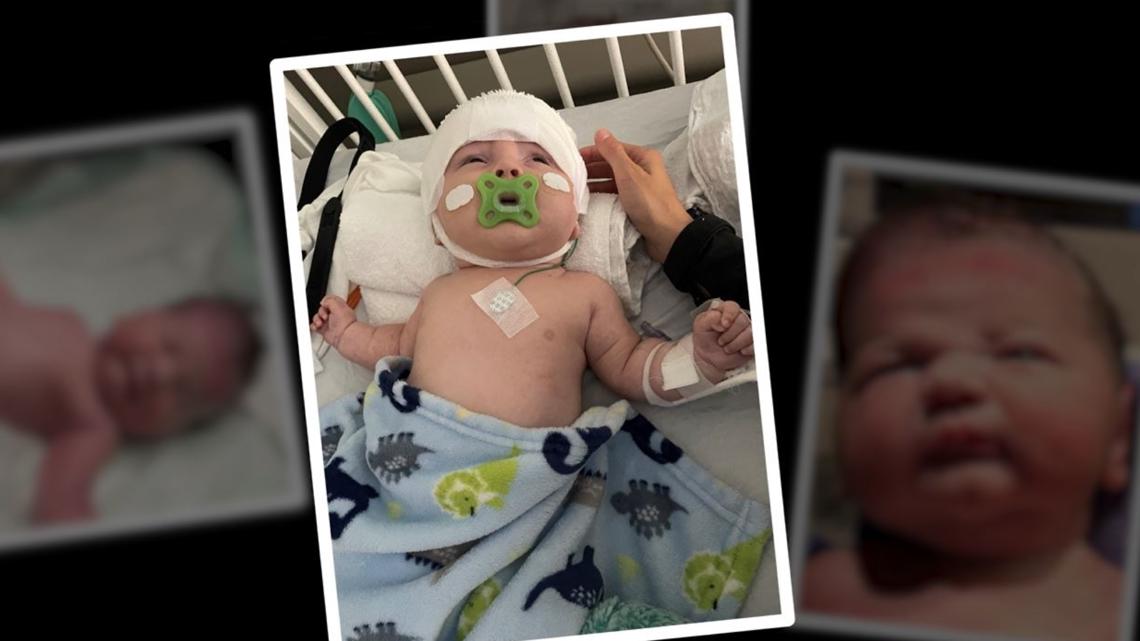
Parents become suspects
Casey, Ridge’s father, was initially the prime suspect. As he researched what doctors meant when they used the term ‘shaken baby syndrome,’ he cried.
“That they can point at me and say, ‘he had to have done it.’ It's just kind of hard, heart-wrenching to hear, especially on that stand when you're in court,” Casey Collins recalled.
Casey was arrested during the execution of a search warrant at his house. He said he wasn’t even allowed to make a call, leaving his wife to wonder for hours where he had gone when she returned home. Eventually, she was arrested, too.

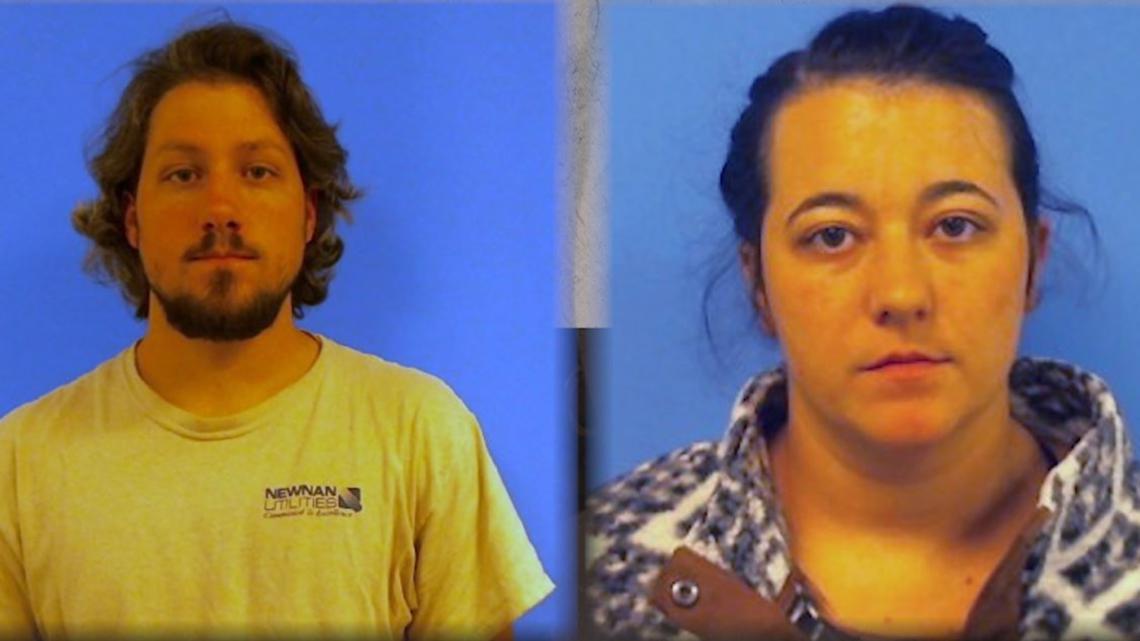
Even in foster care, Ridge returned to the ER months later with another mysterious brain bleed and head swelling. The Collins weren’t allowed to go inside and be with their son, so they sat in the parking lot of the hospital all night, waiting for updates.
The family felt it was proof there was a medical condition causing the injuries, fighting for tests to get the right diagnosis that could lead to medical care.
Pediatrician: 'I read every single note'
Ridge’s normal pediatrician, Dr. Jill Dickerson, said she was baffled by the accusation and started reading every chart and medical note to understand what was going on.
She knew why Ridge’s injuries were raising red flags, but felt doctors at Children’s Healthcare of Atlanta were ignoring his medical history. Ridge was born premature with an abnormally large head, ringed by a strange bruise. He had been seen five times in her office with no concerns about abuse.
She was concerned no one from the hospital, law enforcement, or child welfare was reaching out to her for information that could lead to a wholistic look at the case.
“There wasn't a lot of listening, and there certainly wasn't a lot of compassion. And I can say that from the notes because I read every single note,” said Dickerson.


Dickerson said it was like doctors declared abuse, deemed him now safe in state custody, and stopped running tests. It’s a decision based on a snapshot in time – instead of a review of the child’s entire medical history.
“It's almost like we had an answer that fit, so why would we keep looking? Let's move on,” Dickerson added.
An attorney's perspective
Bailey said her son kept having seizures in the hospital, subtle moments where her bubbly boy would disappear, and his expression goes blank. She said she had to take a video to show doctors to get anyone at the hospital to believe something was still going wrong.
Attorney Darice Good has practiced law for 23 years. She remembers the first time she had to defend a case like the Collins’.
“I felt like everyone else does in many ways that, well, it's a children's hospital. It's child abuse pediatricians, of course; they know what they're talking about,” said Good.
But a colleague reviewing medical reports started raising questions and they both started digging into exactly what science could prove.
“It doesn't necessarily come down to the fact that they're wrong. It's the fact that they're insufficient,” said Good. “They're consistently relying upon the same people, the same records. They're not relying on a lot of these specialists who have had years in their fields.”

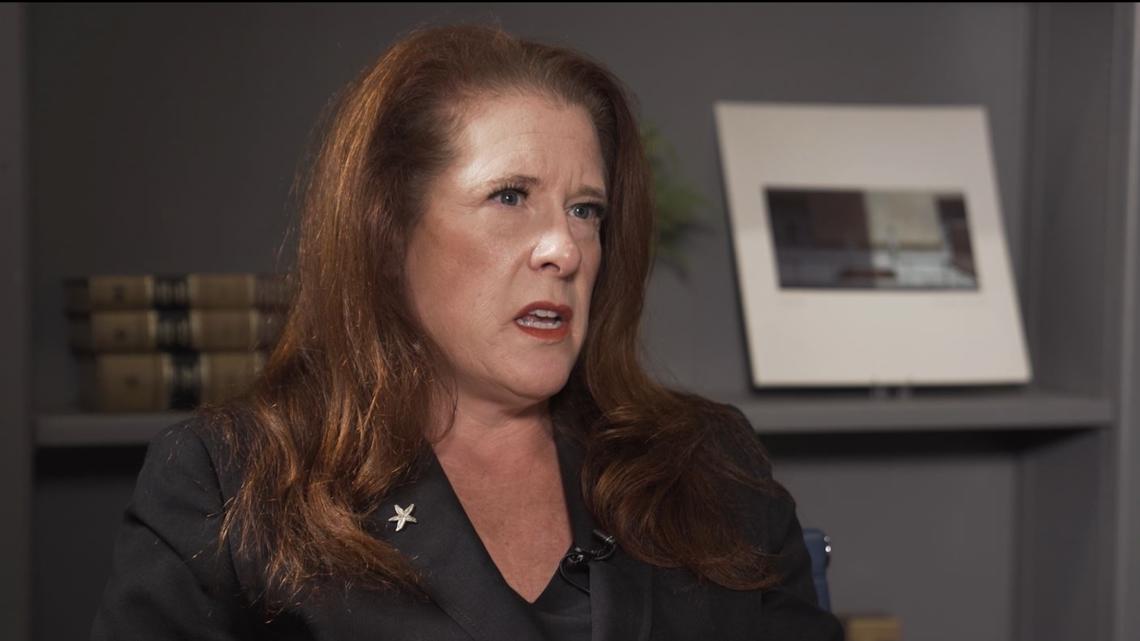
Even when they do, 11Alive has found evidence some of those specialists don’t feel comfortable pushing back against a diagnosis of abuse.
Good says parents often have to fight Georgia’s Division of Family and Children Services for access to their child to even get a second, independent medical opinion.
“Science evolves - and I think that's part of the problem, is that this area of law has not and really of science has not evolved. It's stayed stagnant,” said Good.
That’s left parents with a limited number of medical professionals willing to get involved in these kinds of cases. Good stresses that just because she sends a file to someone for review, they don’t always come back with what the parents hope to hear.
Good recalled a recent case where the doctors came back and said they could find no medical rationale for the injuries, further supporting the idea the injuries were abuse. Good says in those cases, she focuses her fight on parenting classes and custody arrangements that keep the child close to the family. She, too, wants to keep the child safe.
“We can't walk away from these cases and just go, 'Oh, if parents say they didn't do it, they didn't do it,' you know? But we can make ways to: one, reduce the emotional damage to the children, which is most important, but also financial damage, reputational damage, employment damage. Many of my clients have been fired,” explained Good.
Good believes doctors and the courts also need to be willing to pivot when new credible information is presented.
"I have never in my career had them [a CAP] change their position," Good said. "I had a mother who came back positive for osteogenesis imperfecta. The child came back positive of osteogenesis imperfecta, which is a broken bone disease. Multiple broken bones over this child's life. And the child abuse pediatrician refused to change the recommendation from child abuse to underlying disease. The position was that you could also abuse a child with osteogenesis imperfecta."
Good says the other problem is the state's inconsistency with how these cases are handled.
"I have counties where they remove the children. I have counties where they remove the children and give them back. I've counties where the minute they remove them, they file for termination of parental rights and don't ever give them back. I have them where they leave them in the home and have some type of supervision," she said.
'We pray every day'
In April, a juvenile court judge ruled in the Collins case, stating that DFCS had failed to prove their child had experienced abuse.
But a separate court must handle the pending criminal charges. District Attorney Herb Cranford hasn’t said yet what he’ll do, but in Georgia he can take up to seven years to figure it out.
Bailey Collins feared the felony arrest now on her record would prevent her from renewing her EMT license. She proactively started looking for a new job.
Once the DFCS case closed, the Collins were able to get a bond modification, allowing them to be with their son unsupervised. Before then, Bailey and Ridge lived with her parents while Casey maintained the house.
“This is lonely, sad. It has been hard,” he said about going home to an empty house each night.

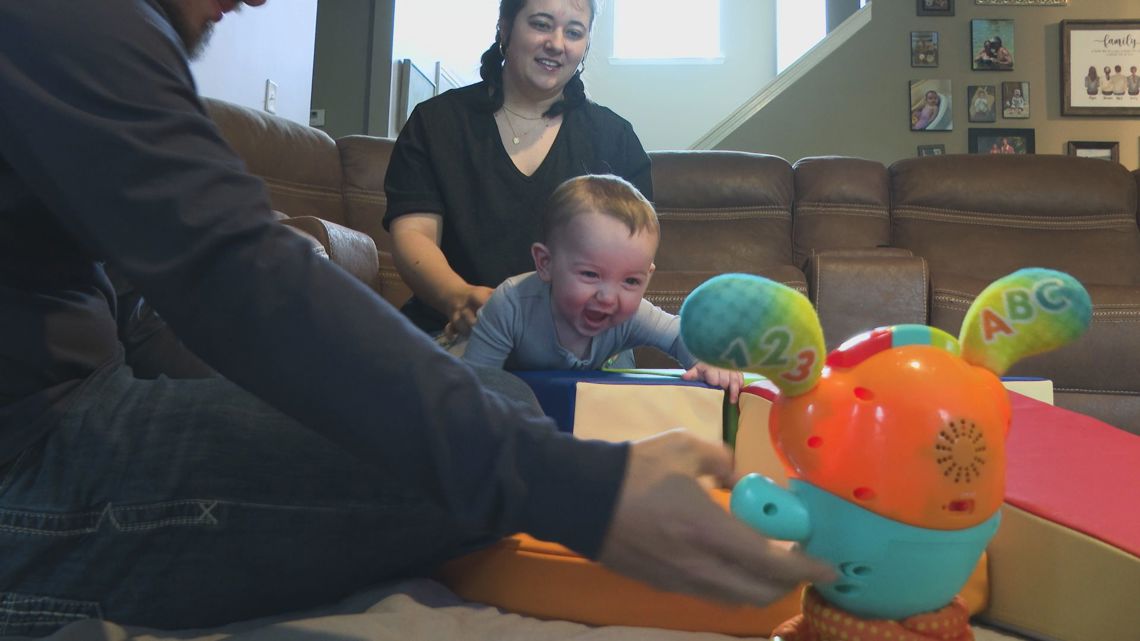
Dickerson gets reports from all of the specialists Ridge now sees. She says in her professional opinion, none of them point to abuse.
Dickerson says violent head trauma damages neurological pathways, causing developmental delays, but Ridge is developing as he should. She believes the initial blood on his brain was from birth when he had to be manipulated out of the womb.
As for the seizures and stroke he experienced, she says tests indicate Ridge has a blood disorder that keeps it from clotting the way it’s supposed to. She’s now working with a hematologist to better understand what triggers the reaction.
“It’s just his immune system overshoots one way and then it overshoots the other way,” Dickerson explained. “This isn't abuse. If DFCS is to protect the child, the best place for the child, especially in this case, is with his family at home. Can we just, let's be done and let's move on?”
Dickerson says she has become more sensitive to collecting information when a traumatic birth has occurred just in case the information is needed later.
"I sent a three day old to get a head ultrasound because it was a traumatic delivery and there was lots of bruising," Dickerson explained.
Good said most of the families she represents do eventually reunite - but it’s an expensive fight. She says the average cost is $50,000. The Collins say they’ve already spent more than $100,000 between legal fees, testing, and expert witnesses.
“What I'm terrified about is that these cases where attorneys don't have the knowledge, don't have the resources, they're appointed cases, there are families who don't have the knowledge and resources," Good rattled off, "I wonder how many of those kids don't go home, and that, if anything, is what keeps me up at night."
11Alive Investigator Rebecca Lindstrom has been looking into the Help That Harms. Follow her investigation on demand via our streaming app 11Alive+ Available on Roku, Apple TV and Amazon Fire TV.

